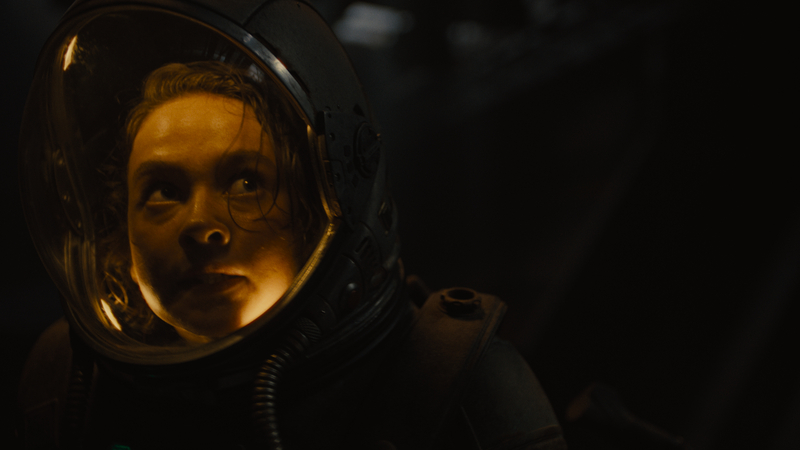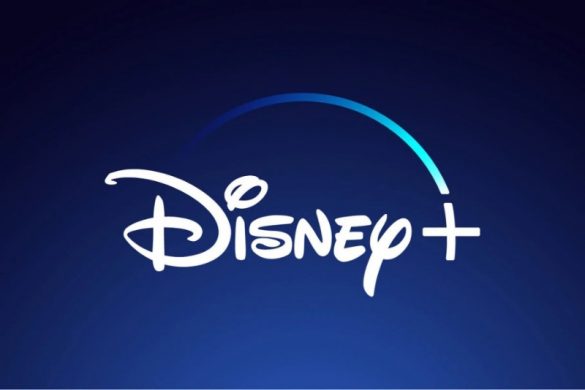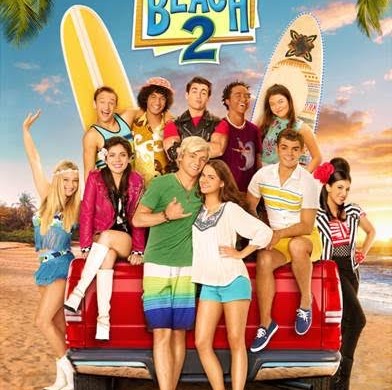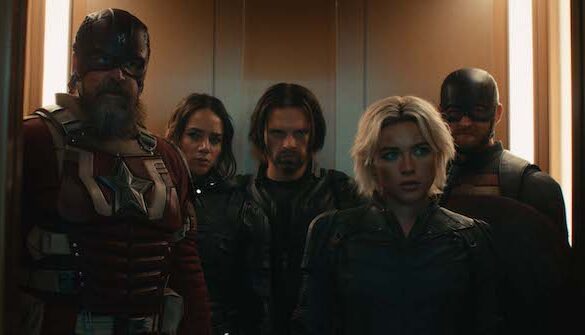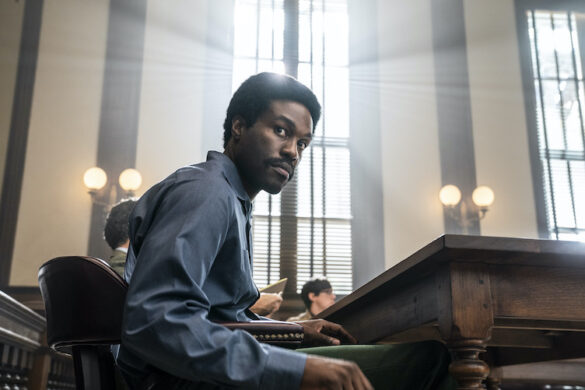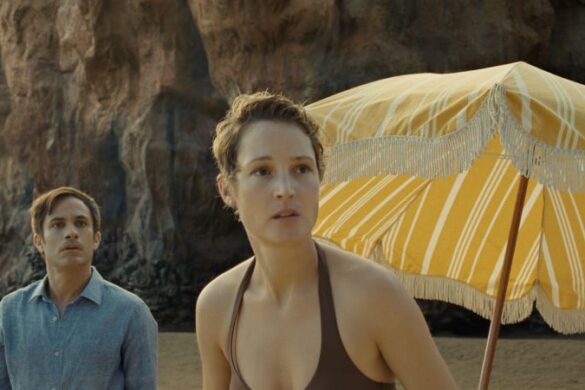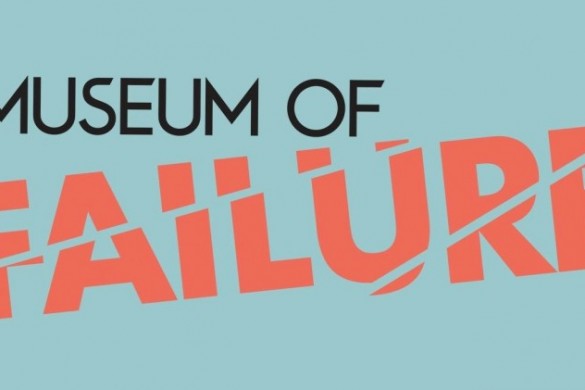“Alien: Romulus” is a back-to-basics sci-fi horror that uses several callbacks to tell a brand new story that doesn’t concern itself so much with the larger mythology. Ridley Scott’s “Alien” (1979) is the quintessential horror that reminds us that in space, no one can hear you scream. No matter how hard you do it. Of course, the film would spawn sequels and prequels to help expand upon its mythology. And yet, it could never achieve the same acclaim as its successors because each one beyond the “Aliens” had wildly different focuses and tones that shifted away from what made those early films great. As such, the lack of consistency or sense of direction had fans long for the days of the first two.
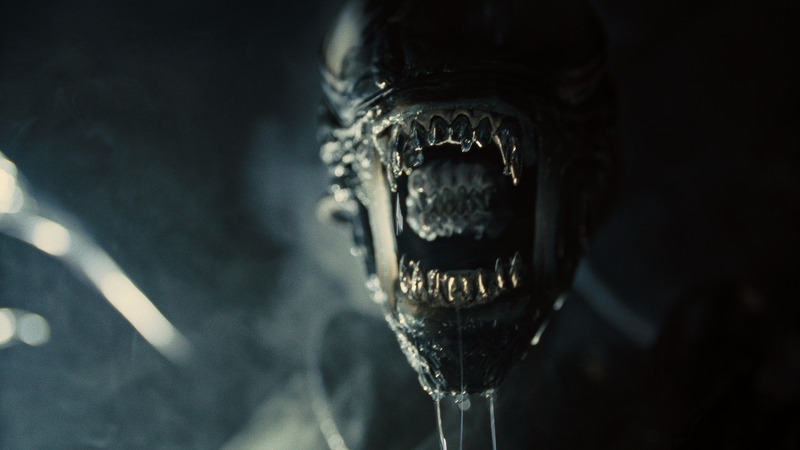
Xenomorph in 20th Century Studios’ ALIEN: ROMULUS. Photo courtesy of 20th Century Studios. © 2024 20th Century Studios. All Rights Reserved.
However, Fede Alverez’s Alien: Romulus takes a page from the original while infusing an understanding of what made “Alien” of the franchise so great to tell a new story about a group of misfits who simply are looking for a way out of a desolate mining colony that mistreats them.
Set in between the events of “Alien” and “Aliens,” “Alien: Romulus” centers on Rain (Cailee Spaeny) and her damaged and outdated android brother Andy (David Jonsson) attempt to flee a mining colony engulfed in darkness. While Rain and Andy only have each other, Rain’s father programmed Andy to do what’s best for her. So even though Andy serves as Rain’s caretaker, the reality is that Rain is the one who has to protect Andy from those who would take advantage of his naivety and inability to defend himself from those who would assault him.
The colony’s outlook matches the population’s nihilism. When Rain submits her service hours, hoping they meet Weyland-Yutani’s quota, she is shocked to learn about the sudden quota increase, which seems almost like a death sentence. She refuses to give up and doesn’t want to leave her brother behind.
When Rain’s friend, Tyler (Archie Renaux), offers them a job scavenging a derelict space station with his crew Kay (Isabela Merced), Bjorn (Spike Fearn), and Navarro (Aileen Wu), that would take them off the planet and travel to a new sanctuary, she jumps at the opportunity not knowing what awaits them on board the ship. Though the group intends to use Andy’s programming to override the derelict station’s codes, they do not inform him of the destination’s prohibiting androids on the planet. But because Andy is programmed to do what’s best for Rain, he has to stay by her side.
The film opens with a Weyland Yutani ship intercepting an encased Big Chap Xenomorph. Using laser piercing technology, the scientists try to crack the rock open. Still, they are unaware of the dangers that await them. Their purpose is to use their DNA to create the perfect organism. As they conduct their research, video recordings will provide Rain and the rest of the misfits with the information they need to escape the ship fully intact and parasite-free.
When they find out where they are, it’s too late because everything goes wrong. That includes facehuggers implanting their eggs into their victims, which causes the group to fracture because they believe they can save them. Rain taking a chip from a disembodied android and planting it into Andy causes the Weyland Yuntani’s programming to override the original directive. Amidst the confusion, the group starts to fracture, and selfish actions put a savage xenomorph and a horde of face-huggers between Rain, Andy, and Tyler and Kay, Bjorn, and Navarro.
Alverez and Rodo Sayagues’s script doesn’t overstuff the film with unnecessary exposition or world-building and instead focuses on Rain and Andy’s sister-and-brother dynamic. The two are trying to escape from their predicament, and we become more emotionally invested in their efforts because they only have each other, and they clearly would do anything to protect the other.
Alverez also establishes the group’s dynamic while also giving them the necessary motivation to escape their despair. Of course, since a film like this is anchored by the fact that everything that could go wrong does, all the actions and decisions are justified because these characters are completely unaware of what xenomorphs and face huggers are and often have to trust shifty disembodied android programmed by Weyland-Yuntai. While the callbacks serve as links to help bridge the gaps between the sequels and prequels, one has to wonder if they were necessary to Rain and Andy’s fight for survival. Indeed, the exposition from a dismembered android helps us understand the gravity of Rain and Andy’s situation while also reminding us about the franchise’s history and Weyland’s goals of obtaining the perfect organism for their nefarious goals.
Though this is an Alien film, and we know what will happen to a group of misfits unaware of the dangers of being trapped with xenomorphs and facehuggers, the film is unpredictable. A lot of that fear and uncertainty is reflected in the way the camera moves, combined with the wirework that gives audiences the illusion of the misfits being suspended in zero gravity, creating an inescapable atmosphere. Rather than attempt to expand the mythology by creating new world-building, the film wisely relies on what made the original so beloved. It never strays too far from the confines of the original, as noted by the push button technology and glitchy video displays.
It also conveys the future through the use of android or nanobot display technology. All that futurism set against the emptiness of space, the claustrophobic sensations of deadly dark organic husks surrounding a spaceship create a frightening atmosphere. And the practical effects amp up the scares as you can see xenomorph coccoons pulsing, facehuggers skittering with their bony legs, or facehuggers trying to implant their eggs into their victims. There’s a point in the film where the crew learns how these facehuggers move and how they cannot capture their victims if they can’t detect a specific body temperature or stress levels. And Benjamin Wallfisch’s fist clenching score is a tribute to characters trying to outrun their killer(s).
The callbacks act more as fan service to reward fans who have stuck with the franchise can be fun but they can also be a detriment to the larger story. The nods help establish the “Alien: Romulus'” connections to the “Alien” films and even its prequels like “Prometheus” and “Alien: Covenant,” but doesn’t do much to serve the story as a whole. Sure, they help inform Rain and the crew about Weyland-Yuntai’s mission, but take all of that out and those unfamiliar with the franchise’s mythology wouldn’t affect the story. Although, I could see how those call backs would entice those unfamilair with the franchise to watch the previous films.
Though the first two acts emotionally invested us in the characters’ survival, by the time it gets to the third act, it starts to revert back to what made the recent predecessors so derivative. It doesn’t so much undo everything that had us scared or rooting for Rain’s survival. Still, it does remind us that the film is olbiged to expand upon the mythology in stupid ways by introducing new aliens. Again, take all the unneccessary guts out and you’ll have a far better film.
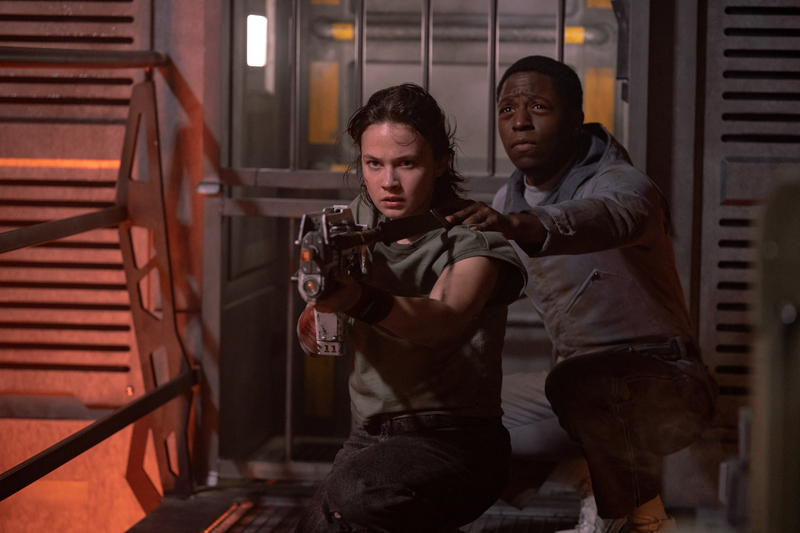
(L-R): Cailee Spaeny as Rain Carradine and David Jonsson as Andy in 20th Century Studios’ ALIEN: ROMULUS. Photo by Murray Close. © 2024 20th Century Studios. All Rights Reserved.
What works about a film like “Alien: Romulus” is that it relies on our attachments to Rain and Andy. This film is clearly about family and the bonds they share with each other as brother and sister and caretakers. Spaney is fantastic as Rain, and gives a performance that delicately balances grit with heart. Jonsson is a scenestealer as Andy, an outdated and slightly damaged android with one purpose. Rain can’t part ways with Andy because he is the only connection she has left of her family and he can’t leave her because her father programmed him to do what’s best for her. It’s a beautiful story of humanity set against the back drop of a terrifying sci-fi horror story. Sure the obligatory callbacks are there to bridge the gaps between the films, but “Alien: Romulus” would have been a stronger film without them. And even though those call backs are fun but do get in the way, we still have a film that uses the franchise’s best hits in ways that bring grit and heart to a franchise that will continue to scare us.
9/10
Alien: Romulus plays in theaters August 16.

